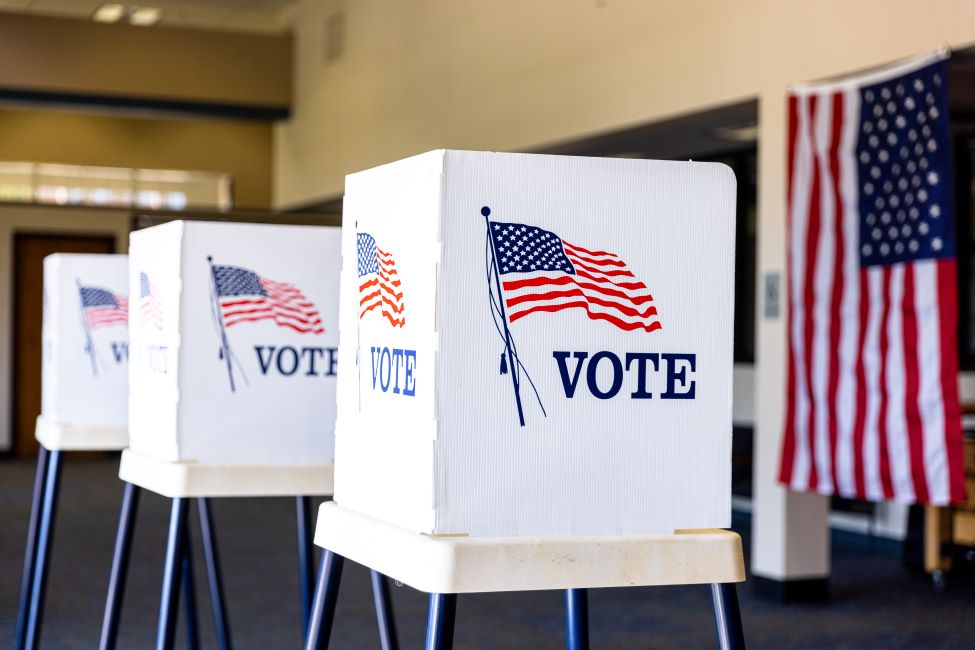FAU Poll: Florida Voters See Rise in Racism, Bigotry

Views on Inequality, Prejudice and ‘Linked Fate’ Influence Voter Behavior
A significant number of Florida voters worry racism and bigotry are on the rise in the U.S., a factor that could impact their voting behavior, according to research by Florida Atlantic University and Mainstreet Research.
In a recent poll taken on April 13 and 14, 56 percent of 1,081 registered voters in the state reported a rise in racism and bigotry across the country, while only 18 percent said these behaviors are on the decline. Females and Black respondents were especially likely to believe that racism and bigotry are on the rise, with rates of 62.4 percent and 73 percent, respectively; the rate was closer to 50 percent for males and Hispanics. Democrats overwhelmingly answered affirmatively with 82.5 percent compared to 34.6 percent of Republicans. A strong majority of undecided voters (66.7 percent) indicated these issues were on the rise as well.
“If there is a perceived rise in prejudice, group consciousness may drive more people to the polls believing that collective action will help the group’s interest along with an individual’s outcomes,” said Luzmarina Garcia, Ph.D., assistant professor of political science at FAU, who conducted the poll with FAU’s School of Communication and Multimedia Studies within the Dorothy F. Schmidt College of Arts and Letters and Mainstreet Research.
Voters also say anti-Semitism remains a serious problem across the U.S.
When Florida voters were asked how serious a problem prejudice against Jewish people is in the U.S., 36 percent ranked it as “very serious.” Twenty-four percent of those polled said anti-Semitism is a “somewhat serious” problem, while 16 percent said it was “not a very serious problem;” 13 percent said it is “not a problem at all.” Among the voters who intended to vote for the Republican party, 22.4 percent considered it a “very serious problem,” while more than half of Democratic voters (52.6 percent) ranked it as such.
The issues of prejudice and inequality also were connected to concerns of “linked fate,” the idea that individuals can be affected by the experiences of people who are like them.
“Do you think what happens to people from your own racial or ethnic group in the country overall affects what happens in your life?” was asked, and more than half (52 percent) believed the statement to be true. Approximately 22 percent of voters did not think there is much of an effect from what happens to others in their racial or ethnic group in their own lives; and 15 percent said not at all. Among Black voters polled, 48.2 percent said they connected their own fate to what they see happening to others like them. Such beliefs among voters can have meaningful influences on their political decisions, based on the FAU/Mainstreet research.
“‘Linked fate’ is a connection where group interests are elevated above individual interests. It is strongest and most documented among African Americans and our findings support this,” Garcia said. “Since ‘linked fate’ can lead to high political participation rates among some groups, this should alter the way that candidates campaign and to whom.”
The poll margin of error is +/- 3 percentage points at the 95-percent confidence level. Margins of error are higher in each subsample. The survey was administered using automated telephone interviews (Smart IVR).
-FAU-
Latest Research
- FAU Researchers Make Great 'Strides' in Gait Analysis TechnologyA first-of-its-kind study explored whether more accessible technologies such as a 3D depth camera could accurately measure how people walk, offering a practical alternative to traditional gait analysis tools.
- FAU Historian Traces How U.S. Nursing Homes Evolved into Big BusinessA historian explores how the Americana Corporation shaped modern nursing homes, revealing how architecture tied aging, care and profit into a system that still defines long-term care in the U.S. today.
- Where a Child Lives - Not Just Diet - Raises Type 2 Diabetes RiskFAU researchers found poor walkability, litter, and reliance on assistance programs are strongly linked to type 2 diabetes risk in young children, based on a large nationwide study.
- FAU BEPI: Economic Strain Hits Hispanic Households Hard in 3rd QuarterHispanic consumer confidence dropped in the third quarter of the year as uncertainty and increased prices placed added pressure on their budgets, according to a poll from Florida Atlantic University's BEPI.
- FAU's Queen Conch Lab Receives Prestigious International AwardFAU Harbor Branch researchers have received the 2025 Responsible Seafood Innovation Award in Aquaculture from the Global Seafood Alliance for its Queen Conch Lab's pioneering work in sustainable aquaculture.
- After Cancer: Study Explores Caring-Healing Modalities for SurvivorsResearch from FAU's Christine E. Lynn College of Nursing highlights how caring-healing methods like mindfulness can ease distress and build resilience in cancer survivors.






